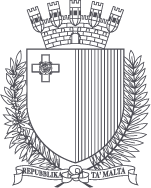(co-Chaired by the Kingdom of Belgium and the Lebanese Republic)
Three years after the adoption of the Paris Plan of Action, one year after the Adoption of the Madrid Priorities for Action
Remarks by the Hon. Carmelo Abela, Minister for Foreign Affairs and Trade Promotion of Malta, under the first agenda item, after the opening: Presentation of ongoing efforts, needs and plans by attending Ministers and heads of international organisations.
Co-Chairs, Honourable Guests, Colleagues, Ladies and Gentlemen,
I am glad to be here to discuss a region that is very close to Malta’s heart. I would like to thank our hosts, Belgium, for their hospitality, and Lebanon, that is co-chairing this Conference.
It is ironic, if not extremely sad and worrying, that exactly when we are supposed to be celebrating the 70th anniversary of the United Nations’ Declaration of Human Rights, Samuel Huntington’s “Clash of Civilizations” has become a self-fulfilling prophecy, especially if we had to analyse the roots of some of today’s prevailing conflicts.
Statistics point to a surge in violence for ethnic and religious reasons, even though the media does not necessarily focus on them on a day-to-day basis. This shows a worrying trend that must be given increasing attention if we are to safeguard human rights and human dignity as the very essence of what makes us human.
During Malta’s Presidency of the European Union, between January and June 2017, security and Europe’s neighbourhood were two of our high-level priorities. We not only pushed forward the counter-terrorism agenda in North Africa and the Middle East, but also spurred on the discussion on freedom of religion and belief.
The MENA region remains, although not exclusively, a concern for the pursuit of vulnerable minorities, especially those of religious communities such as the Christian, Coptic, or Muslim ones. In this regard, we have witnessed the rise of radicalisation – especially targeting disillusioned and unemployed youth, the movements of foreign terrorist fighters, and other violent extremist groups.
Besides supporting the work of the European Union, Malta also supports that of the United Nations as the central body to help fight terrorism. In this regard, the United Nations’ Plan of Action to Prevent Violent Extremism demonstrates the importance of a comprehensive response where the UN has a central role in supporting Member States and regional bodies.
Malta welcomes the upcoming review of the UN Global Counter Terrorism Strategy [the GCTS] and reiterates the need to re-focus the strategy to anticipate and adapt to threat evolutions, including emerging and innovative modi operandi. Furthermore, Malta emphasises that a balanced implementation of all four pillars of the GCTS is imperative for all Member States.
Another aspect to emphasise for the upcoming review of the strategy is Foreign Terrorist Fighters and the prevention of their travel; the collection and sharing of information about their travel, entry or return; and securing the effective collection and dissemination of evidence against Foreign Terrorist Fighters.
n the light of the ever-changing threat, Malta, as a member of the European Union, looks forward to seeing an emphasis on home-grown terrorism as well as on the misuse of the internet and social media.
Another key priority with all partners in the region should be the prevention of radicalisation, with the development of a counter narrative as well as monitoring of extremist teachings – without impinging on the freedom of religion.
Reform of the judicial approach is also necessary, along with the handling of Foreign Terrorist Fighters. The strengthening of the rule of law and a human rights-based, judicial and law enforcement approach to counterterrorism is also important.
This is where partnerships with institutes that provide training and expertise to develop justice and security systems, such as the International Institute on Justice and the Rule of Law in Malta, would be of added value. Since its establishment in June 2014, over 3,000 practitioners such as lawmakers, police officers, prosecutors, and judges from different parts of the world, including the Middle East, have attended programmes on how to address terrorism and related transnational criminal activities within a rule of law framework.
Although not a member, Malta supports the Global Coalition’s actions in trying to counter the financing of terrorism, resuming stability in territories liberated from Da’esh, producing counter-narratives to Da’esh’s propaganda, as well as fighting the flows of terrorist fighters across borders.
Finally, how can any country be unconcerned about the plight and suffering of the Syrian people and others who are also suffering in the region? We cannot afford to turn a blind eye, especially because of the urgency to act and to implement solutions in the wake of an alarming upsurge of senseless violence.
Malta is, therefore, here to express its support for any initiatives that could help reduce the ethnic and religious divisions that are tearing at society.
Thank you.






